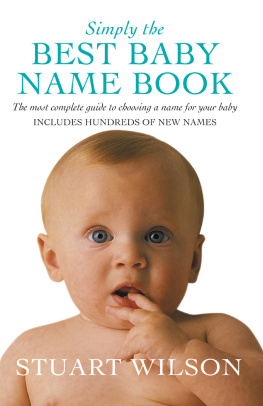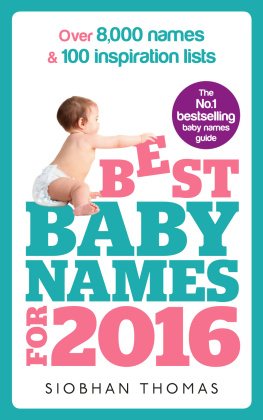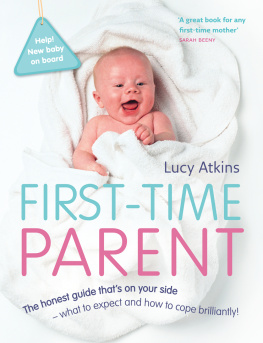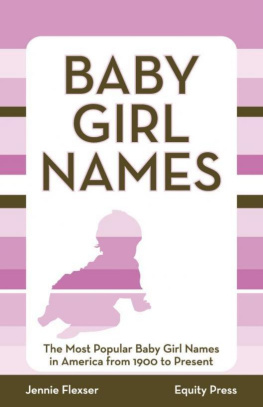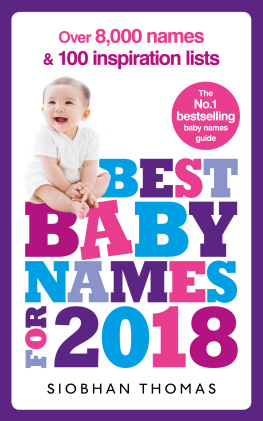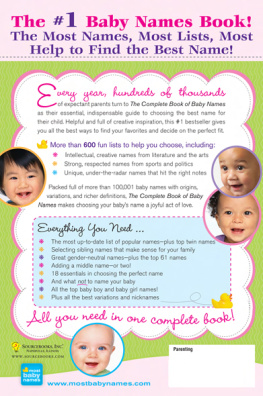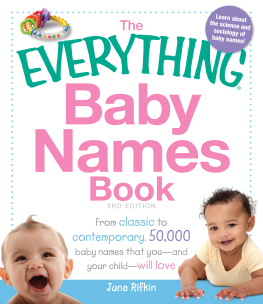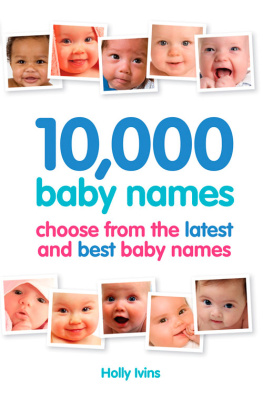Simply the Best
BABY NAME BOOK The most complete guide
to traditional and new names Stuart Wilson PAN BOOKS This book is dedicated to my mother, Bea,whose lifelong interest in names inspired myfirst researches in this area.
Introduction
The last few decades have seen big changes in the amount of information available on the performance of first names. Major breakthroughs include the Registrar Generals statistics for England and Wales, published as First name profiles in
The Guinness Book of Names by Leslie Dunkling, and the HMSO publication
First Names by Emma Merry, which is based upon the National Health Service Central Register. The First name profiles show the rise and fall of all names in popular use since 1900, latterly at five-year intervals. The book by Emma Merry shows the performance of the top hundred names for girls and boys from 1944 onwards, and also lists the top fifty for Greater London, Wales and the eight standard regions of England, giving a unique insight into the regional variations of names. Between them, Leslie Dunkling and Emma Merry have revolutionized our understanding of how names are used, and I for one am happy to acknowledge my considerable debt to them. Other researchers on name use have also been at work: a good deal of statistical information is emerging in the United States with separate figures for Hispanic and African-American groups (as reported by Bruce Lansky, Leslie Dunkling and others), and the top fifty names are available for Australia.
Fascinating though all these statistics may be, they were bound to remain inaccessible to the average parent until some way could be found of translating the figures into a description of how each name performed. This proved a difficult task; but now a system has been developed to achieve this, and the results are contained in this book. For the first time in any name book every popular name is given a concise word picture describing its performance since 1900, thus enabling parents to follow the recent pattern of usage of that name. So, in this book, the usage of popular names is seen as moving in a progression from occasional through light and heavy usage to the ultimate stage of very heavy use. This is based on the Registrar Generals statistics as presented in First name profiles relating to 10,000 same-sex births. Taking male names for example, 1 would mean one boy out of every 10,000 born that year received that name.
Each of the terms from occasional to very heavy indicates a band of usage within this system: Occasional use 149 out of every 10,000 births that year Light use 50149 out of every 10,000 births that year Heavy use 150299 out of every 10,000 births that year Very heavy use 300+ out of every 10,000 births that year As here I add dates to the levels of usage you can see at a glance whether the name is still popular. If a name shows a definite peak in performance, the year for this is stated, and if it fell out of general use the date for this is also given. If two dates are given, for example Occasional use from 1960 to 1985, this means that the name fell out of use after 1985. These comments provide a clear picture of the rise and fall of every name in popular use, giving parents insight into whether the name is maintaining its place, falling out of fashion or starting to revive again. However, parents should bear in mind that information on name performance is available only for those names that have been in general use long enough to show up on the statistics. After the publication of my book The Pan Guide to Babies Names (the first name book to be indexed by concept and source) I set up a name consultancy to advise parents on the choice of names.
What emerged from this consultancy was the realization that modern parents are only interested in the recent performance of names. There is simply no evidence that parents have any interest in the history of a name beyond 1900, and a names popularity in 1600 or 1700 is just not relevant to the process of choosing a name for a baby born today. For that reason no reference is made in this book to name performance before 1900. Other surprises emerged during the consultancy process. For example, when I first began researching name use, I assumed that the average parent would be interested in famous bearers of a name. However, I discovered that most parents are sensible about this: they realize that a famous namesake will seem charismatic only for a limited time and may have fallen into obscurity (or even disgrace) by the time any baby named today reaches maturity.
Since information on famous namesakes thus plays little or no part in the selection process, it is not included in this book. Other more subtle aspects of name use clarified for me over this period. I began to see that fashions in name popularity reflect current trends in society. Hence the revival of interest in Celtic culture has focused attention on Celtic names; the ecology movement has made Native American names fashionable; and Japans rise as an industrial power has highlighted Japanese names. The impact of Eastern religion and philosophy has helped popularize Sanskrit names, the rise of Islam has spread Arabic names and the increasing interest in native peoples has brought Polynesian names to the fore. Celtic names in particular have shown a substantial increase in popularity over the last two decades.
This book includes a wide range of Celtic names: not only Welsh, Irish Gaelic and Scottish Gaelic, but also many names from Cornish and Breton sources. It also became clear that too little allowance had previously been made in books of this kind for the increasing pace of modern life. Todays English-speaking parent is a busy person with no time to waste; that is why foreign language variants are listed here alphabetically by source, enabling readers to access swiftly and easily names from any favourite language tradition. I have given full coverage to the Celtic languages, distinguishing between a Scottish form like Hamish and the Scottish Gaelic original, in this case Seumas. The result of this approach is the most thorough and balanced listing of foreign language variants in any name book. I have also included a section Languages of the world; if you come across any unfamiliar language in the text, this is the place to look.
I have given the number of languages within each continent or area; and the total of 342 languages is more than double the number cited in any other name book. And there is one other thing to add about languages: as this book is designed for an English-speaking audience I have followed progressive American practice and omitted accents. With the busy parent in mind, there is also no point listing all the possible alternative spellings of a name. I could have greatly increased the size of this book had I gone down that road but there is no evidence that the modern parent wants this approach. Parents are perfectly capable of creating their own version of a name by swapping c for k, s for z, ie for y and so on. Hence I give the main forms of each name only, leaving the reader free to develop their own spelling alternatives.
Add to this the exciting new developments in blend names (combining the elements of two or more existing names) and the field is wide open for parents to create whatever name they wish. This is a precious freedom that is highly developed in the English-speaking world, a product of our history and our willingness to experiment. It is seen at work in the tradition among Southern families in the United States of giving children stylish and unusual names, and through the creation of new names by black American families by using prefixes like La-, Sha- and
Next page
